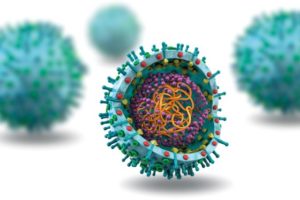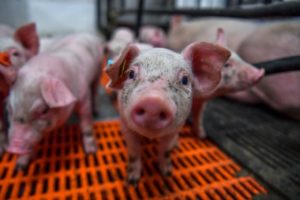As consumers shift their focus to health and wellness, the Thai poultry industry has to adopt a new identity synonymous with high quality poultry production by pushing its food safety and animal welfare practices to meet the global standard.
The industry, best known for its competitive price, has been trying hard to revamp its image with a special focus on food quality and safety.
The turning point of the Thai poultry business was in 2004 when Thailand lost its key markets due to the outbreak of bird flu. Since then, the industry has paid more attention to disease control and quality issues.
The private sector played an important role in the industry’s revival. It realised that hygiene and strict biosecurity practices were the solution. Good chicken housing systems was the main area that was significantly improved. For example, evaporative air cooling systems (EVAP), a system to control the environment within the farming area, were installed by major companies such as Charoen Pokphand Foods (CP Foods) to prevent the risk of outbreak.
Furthermore, poultry producers have worked together with the government and farmers to improve food safety standards. The top priority is to ensure that the products are safe from antibiotic residue, growth hormones and other drugs used to treat animals.
Poultry expert, Dr Payungsak Somyanontanakul, vice president of CP Foods, said the Thai Government strictly prohibits the use of substances in animals such as Hexoestrol which is a growth-enhancement hormone. “Therefore, it is impossible to have chemical residues left over in chicken meat since it is illegal in the country,” he added.
CP Foods, a leading poultry producer in Thailand with 30% market share, recently announced global policy on responsible antimicrobials use. The policy is now implemented by all of its units globally.
“The policy demonstrates our leadership in the food sector and commitment to food quality and safety. As antimicrobial misuse is becoming a global issue, the company is taking a proactive role as one of the food industry leaders minimising the risk of antimicrobial resistance. Share-class antimicrobials are used prudently under strict supervision from veterinarians,” Dr Payungsak said.
It also implements good animal welfare practices to improve the health of chickens instead of using feed addictives.
“At CP Foods, we believes that keeping chickens in a healthy and happy state can prevent the animal from getting sick, and therefore, less chance of using antimicrobials,” he added.
The industry’s attempt has been very successful so far since it has not been affected by any serious incident for over a decade.
Nowadays, the standard of Thai poultry has finally regained confidence from many major markets in the world such as the European Union and Japan.
In the previous year, Thai poultry enjoyed stellar success in the chicken exporting business. The country exported 790,000 tons valued at US$3.05 billion, making it the fourth largest poultry exporter in the world.
Inicio » How Thai poultry business is revamping its image
CLADAN was born with the vision of providing the market with value proposals aligned with the development of reliable animal nutrition and health. Today, our products are a reflection of our commitment to the development of a sustainable, competitive and demanding production.
Categories
Latest posts
Cladan Knowledge
Weekly publications, interviews and technical articles
Related posts

Thailand highlights its poultry welfare standards
THAILAND – The animal welfare movement has become global in its push to help billions of animals live in better conditions However, it has a
1 November, 2018

How to tackle the versatility of PRRS?
PRRS Swine virus is known for its capacity to mutate. Worldwide, two major genotypes are known and so are many strains – with many different
1 November, 2018

TGE virus-resistant pigs created
US researchers have produced a litter of pigs of which they claim they are genetically resistant to Transmissible Gastroenteritis virus (TGEv), causing gut disease with
1 November, 2018
